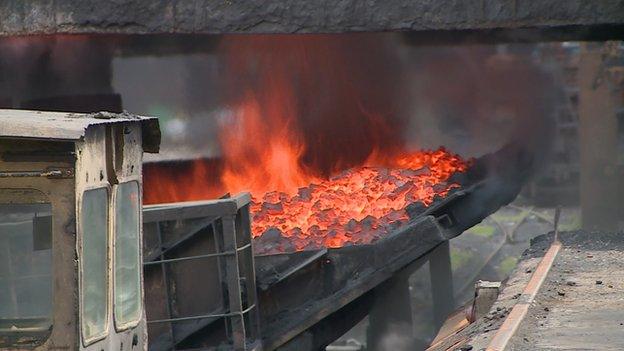Putin declares Russian troop deaths in peacetime a secret
- Published
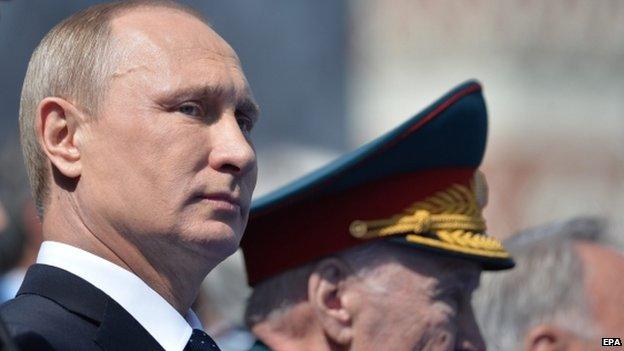
Vladimir Putin attended a military parade to mark Victory Day earlier this month
Russian President Vladimir Putin has signed a decree to make losses of Russian troops in peacetime a secret.
The amendment bans information about the deaths of Russian forces "during special operations" in peacetime.
The Kremlin has consistently denied sending regular troops and armour to help rebels in eastern Ukraine.
But a new report from the US says Russia has been using training camps near the border as "launching points of Russia's war in Ukraine".
The study by the Atlantic Council, external, published on Thursday, claims to have tracked Russian involvement in the conflict using photographs, videos and satellite images posted online.
President Putin's move to ban information about peacetime military deaths comes amid fears of a fresh offensive by Russian-backed separatists.
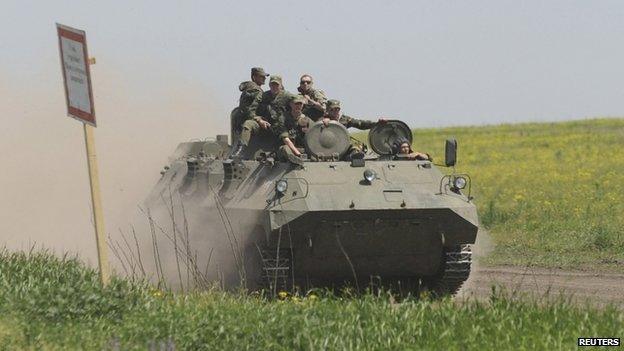
Men wearing military uniforms ride atop a troop transporter during exercises at Kuzminsky military training ground in the Rostov region
Reuters reporters said, external they had observed this week Russia's army massing troops and weaponry - including mobile rocket launchers, tanks and artillery - at a makeshift base in Kuzminsky, near the border with Ukraine.
The news agency said many of the vehicles had number plates and identifying marks removed, while servicemen had taken insignia off their fatigues - similar to some unidentified forces seen in eastern Ukraine.
A ceasefire agreement was signed in Minsk in February, but heavy fighting has continued in some areas since then.
'Secretly buried'
Before the amendment was signed by Mr Putin on Wednesday, the loss of troops was a state secret only in wartime.
The decree gives no details of what is meant by "special operations".
For months there have been reports of secret burials of Russian soldiers killed in Ukraine.
Earlier this month, Russian blogger Ruslan Leviyev said he had found three graves of Russian officers killed by shelling in eastern Ukraine on 5 May.
Meanwhile the authors of the Atlantic Council report - including British weapons analyst Eliot Higgins - say satellite images have confirmed the movement of Russian troops and camp build-ups along the Ukrainian border.
Ukrainian President Petro Poroshenko: "I think that they are preparing for an offensive"
They say Russian training camps are being used as "the staging ground" for military equipment and soldiers to be transported into Ukraine.
The most recent photograph analysed in the Atlantic Council report was taken in February.
Captured soldiers
The Kremlin has denied Western accusations that its forces are directly involved in combat, insisting that any Russians serving with the rebels are "volunteers".



On Wednesday Russia's ambassador in Ukraine visited two men, who were captured by Kiev and accused of being elite Russian soldiers operating in the Luhansk region.
The Kremlin had demanded access to Aleksandr Aleksandrov and Yevgeny Yerofeyev, complaining that their situation was being exploited as propaganda.
The pair were charged by Kiev with involvement in "terrorist activity", after apparently confirming in video statements that they were active Russian servicemen.
Moscow said they were not serving "at the moment they were detained".
But Ukraine's President Petro Poroshenko told the BBC that the soldiers were proof that his country was engaged in a "real war" with Russia, rather than pro-Russian separatists.
He said Ukrainians should prepare for a Russian offensive in the coming months.
Nato Secretary General Jens Stoltenberg has called for an end to snap exercises by Russia close to the Ukrainian border, and demanded Russia be "more transparent when it comes to their military activities".
- Published20 May 2015
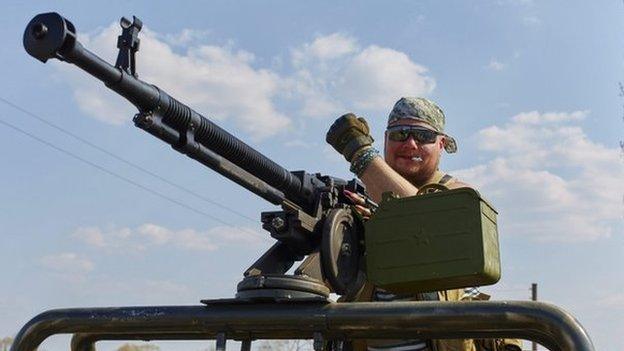
- Published10 March 2015
- Published27 August 2014
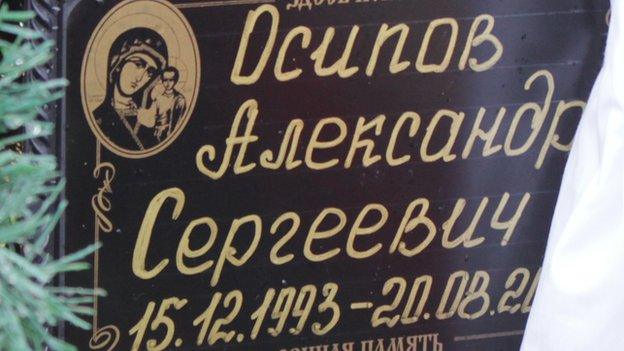
- Published12 May 2015
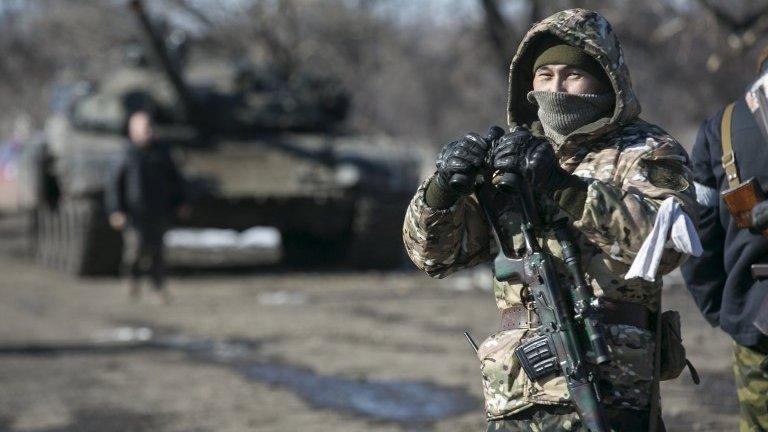
- Published17 April 2015
